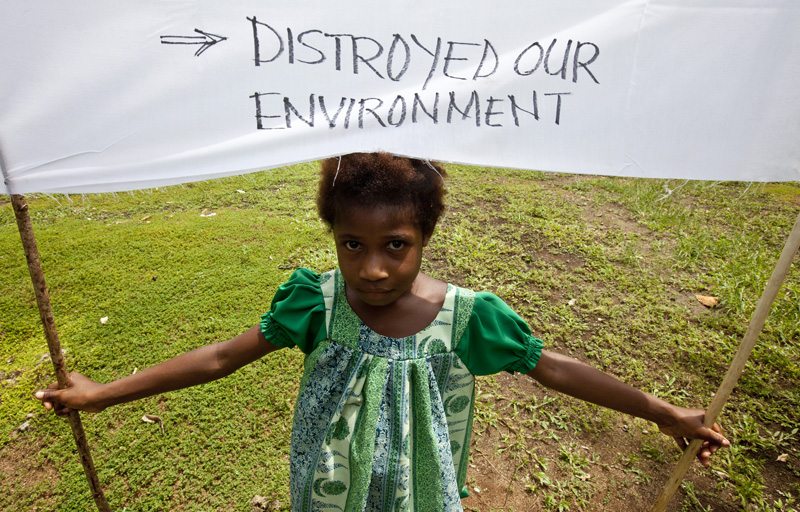It may be just off the coast of North Queensland, but Papua New Guinea is metaphorically very far way from most Australians.

Originally posted by Crikey, Tuesday, 23 October 2012
Arriving in Port Moresby, the distance of experience from Australia’s southern cities could hardly be greater. Physically, the city feels like it is caught mid-step between an ambiguous colonial past and an explosive future, built on an 8% growth rate in annual gross domestic product predicated on a burgeoning LNG sector.
Australia’s Department of Foreign Affairs and Trade advises a”high degree of caution in Papua New Guinea because of the high levels of serious crime”, with Port Moresby being a hot spot: “Carjackings, assaults (including s-xual assaults), bag snatching and robberies are common.” Old hands mutter that you can get about the streets OK for the most part, but not everyone wants to take the chance. Staying within secure cars and premises, the sensation is one of being piped from place to place. The power relations inherent in preserving personal safety can be complex and uncomfortable. Many buildings sit behind wire and guards. The Australian diplomatic compound colloquially known as “Fort Shit Scared” is surrounded by a solid white wall topped with barbed wire.
The astonishing cultural heterogeneity, forbidding topography and widespread poverty make the business of statehood and government an immensely difficult enterprise in Papua New Guinea. The very real dilemmas here could not be in greater contrast to the confected political outrage that contorts Canberra.
Inside the buildings and sitting down with politicians, officials and diplomats, the mood is cautiously optimistic. New Prime Minister Peter O’Neill was elected with a strong mandate and has promised a suite of reforms to PNG’s troubled political system, including a crackdown on corruption. Though clearly encouraged, observers are still withholding judgment. One foreign official expresses a common view: “The sentiments are perfect, but let’s see the concrete steps.”
Complicating matters further, with a deep appreciation of PNG’s resources and location, China has offered a $3 billion in a soft, long-term loan, without any of the irritating accountability imposed by the likes of AusAID.
An early test for O’Neill is what he intends to do about the Special Agricultural and Business Leases scandal. Seventy-two of these have been granted in dubious circumstances, effectively giving over 5.1 million hectares of customarily-owned land over 11% of the country to unrepresentative landowner companies and foreign-owned corporations for up to 99 years. If they are allowed to stand, the SABLs will open up the jungles of PNG part of the third largest remaining tropical rainforest in the world to wholesale exploitation and deforestation. It is a land grab of staggering proportions.
In May last year, after facing international condemnation, the PNG government announced a commission of inquiry into SABLs. Early reports suggested the commission had already completed its findings in May this year. But more recently O’Neill has told the ABC’s Background Briefinghe had not yet received the report. And last week sources close to the PNG government were denying the commission’s report had even been completed. The uncertainty is risking the credibility of O’Neill’s fledgling administration.
Internationally, through the emerging global scheme for Reducing Emissions from Deforestation and Degradation (orREDD), donor nations are watching with interest. PNG has played a conspicuous part in international negotiations over REDD, for a time advised by consulting firm McKinsey, and led by the charismatic but controversial special envoy Kevin Conrad. Since Conrad’s hero moment at the Bali climate talks in 2008, disquiet with his role has grown. In 2010 it was O’Neill who attacked Conrad for his connections to a range of failed business dealings. It came as no surprise then when a government official confirmed with deliberate iciness last week that “Mr Conrad has been informed that his services are no longer required”.
The global climate imperative to conserve PNG’s forests becomes ever more urgent, but REDD will only become a reality if corruption can be sufficiently constrained. It is also essential that corruption be curtailed prior to PNG’s massive LNG resource coming online in 2014. The stakes are high. Decisions made over the next few years will determine the future course of PNG our nearest neighbour for decades to come.
Late in the afternoon, the sky turns a dark lemon yellow in the humid dusk over Port Moresby. Change is coming, ready or not.
*David Ritter is an author and the CEO of Greenpeace Australia Pacific, which researched and produced the initial report on the SABL scandal and is continuing to campaign on the issue.

